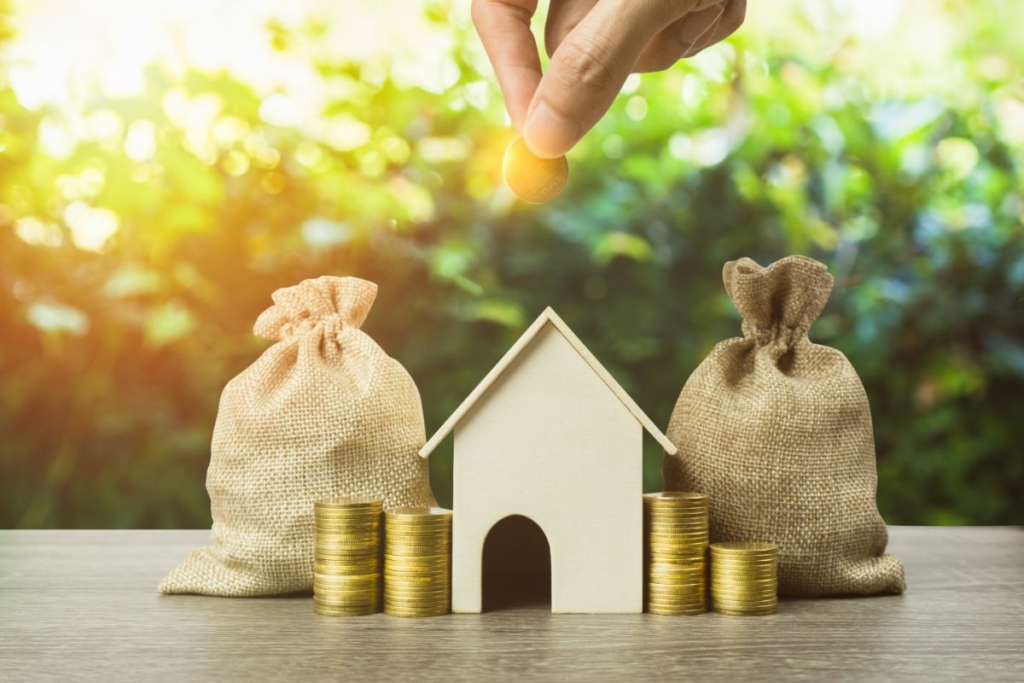
4 Ideal Locations for Work-Life Balance for BPO Industry Professionals
Discover ideal locations for BPO professionals with Breighton Land, offering strategic homes near key business hubs for a balanced lifestyle.

1. Reputation and track record
2. Quality of workmanship
3. Transparency and communication
4. Legal compliance
5. Financial terms and pricing
6 Flexibility and customization
Discover ideal locations for BPO professionals with Breighton Land, offering strategic homes near key business hubs for a balanced lifestyle.
5 Advantages of Choosing Cavite as Your Ultimate Home in Luzon What are the advantages of choosing Cavite as your ultimate home in Luzon? 1. Accessible to the Metro...
- Making an investment in real estate signifies a substantial financial commitment that holds the potential to shape your future in various ways. Whether your goal is to find a comfortable new residence, weigh the possibilities of acquiring commercial property for your business, or explore investment opportunities, the choice of a real estate developer can make or break the deal.
- In this article, we’ll explore what to look for in
a real estate developer. View these elements as your reliable markers, pointing you in the direction of an informed and confident decision for your real estate path.
● Thoroughly research the developer’s reputation, including reviews and past project performance, to gauge their reliability and customer satisfaction.
● Visit completed projects, examine materials, and gather feedback from previous buyers or renters to ensure the property meets high construction standards.
● Choose a developer who communicates openly, responds promptly to inquiries, and provides clear updates on project progress to build trust.
● Review pricing structures, payment terms, and overall costs to ensure transparency and alignment with your financial situation.
● Verify that the developer complies with all regulations, has the necessary permits, and has a clean legal history to protect your investment.
● Assess whether the developer allows property customization to meet your unique needs and preferences.
First things first, when choosing a real estate developer, take a deep dive into their reputation and track record. It’s like checking someone’s references before hiring them for a job.
A developer’s reputation is built over time, project by project. Invest time in checking and understanding the viewpoints of others. Investigate online reviews, client commendations, and any press releases detailing their previous accomplishments. Were they able to meet the deadline and stay within the budget? Word of mouth is powerful, so talk to people who have worked with or purchased properties from the developer.
When you make a purchase, it’s more than just acquiring a property; you’re putting your money into the quality of workmanship. You want a place that’s not just four walls and a roof, but a space that’s well-constructed, aesthetically pleasing, and built to last. To assess the quality of workmanship, you should visit completed projects by the developer if possible. Take a stroll through the buildings, examine the final touches, and closely observe the materials used. Are they in line with what you’re looking for? Reach out to those who have bought or rented properties in the past, as their experiences can be informative regarding property quality.

Communication is key in any business transaction, and real estate is no exception. You want a developer who is transparent and communicates openly throughout the project’s lifecycle.
Are they committed to keeping you informed about project progress consistently? Do they answer your questions promptly and professionally? Are they forthcoming about any challenges or issues that may arise during the construction process? When you’re investing your money in a property, trust becomes paramount, and transparency and clear communication are the building blocks.
The world of real estate development is intricately connected to a network of regulations, permits, and licenses. Make sure the developer you’re considering is on the right side of the law. This isn’t an area where you can afford shortcuts or compromises.
Make sure the developer follows the necessary local and national regulations. Legal compliance isn’t just about avoiding trouble; it’s also about ensuring that your investment is secure and protected by the law.
Having a clear understanding of the pricing and payment terms from real estate developers is absolutely essential. Review the pricing structure. Is it competitive compared to similar properties in the area? What are the payment terms? Are they reasonable and aligned with your financial situation?
Remember to include the overall price, which involves accounting for any added costs or taxes related to the purchase. You don’t want any surprises when it comes to the financial aspect of your real estate deal.
When you make a purchase, it’s more than just acquiring a property; you’re putting your money into the quality of workmanship. You want a place that’s not just four walls and a roof, but a space that’s well-constructed, aesthetically pleasing, and built to last. To assess the quality of workmanship, you should visit completed projects by the developer if possible. Take a stroll through the buildings, examine the final touches, and closely observe the materials used. Are they in line with what you’re looking for? Reach out to those who have bought or rented properties in the past, as their experiences can be informative regarding property quality.
As a final point, ponder if the developer presents flexibility and customization selections. Your real estate needs may not fit neatly into a one-size-fits-all package.
Are alterations to the property feasible in order to match your unique needs and preferences? Is the developer willing to work with you to accommodate your requests, within reason? Flexibility and customization can turn a good property into your dream property.
When assessing what to look for in a real estate developer, it’s imperative to consider several key factors. It is crucial to examine reputation and track record using reviews and references for reliability and assess craftsmanship through on-site inspections and client feedback. Furthermore, factors like transparent communication, legal compliance, fair financial terms, and customization options are essential for a successful investment in real estate.
Your dream home, investment, or business space is just a click away. Discover why Breighton is building dependable trust in the world of real estate. We have a proven track record of delivering quality properties that meet your needs and aspirations. Contact us now to discuss your real estate goals and explore the exciting opportunities we have to offer. Contact us today.

1. Reputation and track record
2. Quality of workmanship
3. Transparency and communication
4. Legal compliance
5. Financial terms and pricing
6 Flexibility and customization
– Making an investment in real estate signifies a substantial financial commitment that holds the potential to shape your future in various ways. Whether your goal is to find a comfortable new residence, weigh the possibilities of acquiring commercial property for your business, or explore investment opportunities, the choice of a real estate developer can make or break the deal.
– In this article, we’ll explore what to look for in a real estate developer. View these elements as your reliable markers, pointing you in the direction of an informed and confident decision for your real estate path
First things first, when choosing a real estate developer, take a deep dive into their reputation and track record. It’s like checking someone’s references before hiring them for a job.
A developer’s reputation is built over time, project by project. Invest time in checking and understanding the viewpoints of others. Investigate online reviews, client commendations, and any press releases detailing their previous accomplishments. Were they able to meet the deadline and stay within the budget? Word of mouth is powerful, so talk to people who have worked with or purchased properties from the developer.
When you make a purchase, it’s more than just acquiring a property; you’re putting your money into the quality of workmanship. You want a place that’s not just four walls and a roof, but a space that’s well-constructed, aesthetically pleasing, and built to last. To assess the quality of workmanship, you should visit completed projects by the developer if possible. Take a stroll through the buildings, examine the final touches, and closely observe the materials used. Are they in line with what you’re looking for? Reach out to those who have bought or rented properties in the past, as their experiences can be informative regarding property quality.

Communication is key in any business transaction, and real estate is no exception. You want a developer who is transparent and communicates openly throughout the project’s lifecycle.
Are they committed to keeping you informed about project progress consistently? Do they answer your questions promptly and professionally? Are they forthcoming about any challenges or issues that may arise during the construction process? When you’re investing your money in a property, trust becomes paramount, and transparency and clear communication are the building blocks.
The world of real estate development is intricately connected to a network of regulations, permits, and licenses. Make sure the developer you’re considering is on the right side of the law. This isn’t an area where you can afford shortcuts or compromises.
Make sure the developer follows the necessary local and national regulations. Legal compliance isn’t just about avoiding trouble; it’s also about ensuring that your investment is secure and protected by the law.
Having a clear understanding of the pricing and payment terms from real estate developers is absolutely essential. Review the pricing structure. Is it competitive compared to similar properties in the area? What are the payment terms? Are they reasonable and aligned with your financial situation?
Remember to include the overall price, which involves accounting for any added costs or taxes related to the purchase. You don’t want any surprises when it comes to the financial aspect of your real estate deal

When you make a purchase, it’s more than just acquiring a property; you’re putting your money into the quality of workmanship. You want a place that’s not just four walls and a roof, but a space that’s well-constructed, aesthetically pleasing, and built to last. To assess the quality of workmanship, you should visit completed projects by the developer if possible. Take a stroll through the buildings, examine the final touches, and closely observe the materials used. Are they in line with what you’re looking for? Reach out to those who have bought or rented properties in the past, as their experiences can be informative regarding property quality.
As a final point, ponder if the developer presents flexibility and customization selections. Your real estate needs may not fit neatly into a one-size-fits-all package.
Are alterations to the property feasible in order to match your unique needs and preferences? Is the developer willing to work with you to accommodate your requests, within reason? Flexibility and customization can turn a good property into your dream property.
When assessing what to look for in a real estate developer, it’s imperative to consider several key factors. It is crucial to examine reputation and track record using reviews and references for reliability and assess craftsmanship through on-site inspections and client feedback. Furthermore, factors like transparent communication, legal compliance, fair financial terms, and customization options are essential for a successful investment in real estate
Your dream home, investment, or business space is just a click away. Discover why Breighton is building dependable trust in the world of real estate. We have a proven track record of delivering quality properties that meet your needs and aspirations. Contact us now to discuss your real estate goals and explore the exciting opportunities we have to offer. Contact us today.
Subdivision vs Condo Living: Which is Best for My Family? Subdivision vs Condo Living: Which is Best for My Family? 5 Tips for Finding the Perfect Home in Luzon...
What are the white flags to look for in a real-estate developer? Overview It’s essential to recognize the white flags in a real estate developer as this indicates a...
Please enter your username or email address. You will receive a link to create a new password via email.
